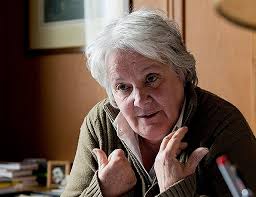It’s International Women’s Day on Sunday (8th March), so let me tell you about three well-known Latin American women, all in politics, and what they can teach exporters about doing business in this region.
1- Cristina Fernandez, President of Argentina
She’s having quite a rough time at the moment, but what can we learn from Argentina’s controversial president?

Apparently, a big fan of Louboutin. Long story.
When targeting Latin American consumers, remember that there are 300 million middle class consumers but also a strong elite with high purchasing power, with people like Mrs Fernandez. They are more likely to buy their luxury goods in the US or Europe than in Latin America, but are also driving a stronger local presence of luxury brands (see our articles about luxury in Colombia and Uruguay). From yachts to designer handbags, they’re a segment not to be overlooked. If you followed the Mexican President’s recent state visit to the UK, with his wife Angelica Rivera, you will know what I mean.
2- Dilma Rousseff, President of Brazil
Another one having a tricky time right now, but can we learn from her?

You’ve been warned.
Latin America is a continent of immigrants. Just like Mrs Rousseff is linked to Bulgaria and I’m linked to (in case you’re remotely interested) Spain, Italy and Portugal, most Latin Americans you will meet have a history behind them (I personally feel very strongly about the marginalisation of native communities in Latin America, but let’s leave that for another forum). This might mean that some of your Southern European counterparts will have it a bit easier than you here. Or not. But you need to be aware of this. We might only speak two languages across the whole of Latin America, but that doesn’t mean our population is homogenous.
3- Lucia Topolansky, Senator, Uruguay.
Arguably better known for being the wife of mediatic Uruguayan former president Jose Mujica, Mrs Topolansky also illustrates my point about immigration (her surname is of Polish origin).

Expect hand gestures, hugs, kisses and the lot.
What can we learn from Uruguay’s former First Lady?
If you’re serious about doing business with Latin America, get to know it. How much you need to go into detail depends on your involvement, but you need to know some basics. Like the fact that most Latin American countries went through a period of guerrilla fighting/civil war and dictatorships not that long ago (in my lifetime, and I’m not old!). This is still an issue now, and politics are present in business, too. Mrs Topolansky is a prime example of this past-present-future tension that is much stronger, I feel, in Latin America than in the UK. Mrs Rousseff, above, is also a good example, and so is Mrs Bachelet in Chile. If you feel strongly in favour or against Fidel Castro, Chavez or Pinochet, keep it quiet. Things can get seriously agitated. But do expect some political comments here and there…
And finally…
…in business as in politics, expect Latin American women to be very expressive (see pictures above). Expect physical contact, lots of hand gestures and powerful language. Machismo levels will vary between countries, and inequality still exists, but things are changing. Make sure you cater for the changes that the economic and social empowerment of women have brought along, from increased demand for products and services (education, convenience foods, beauty/cosmetics, etc) to the increased presence of women in leadership positions. That doesn’t mean I am personally fond of either of the three above, but they do mark a trend.
In Latin America, women mean business. And I’m pretty proud of it.
